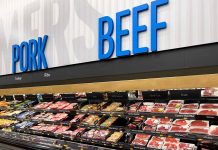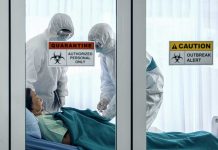
Amid recent outbreaks and increasing illness statistics, America’s food supply chain faces a dire challenge in ensuring safety and quality assurance.
At a Glance
- Listeria and E. coli outbreaks raise concerns about current U.S. food safety measures.
- FDA’s Food Safety Modernization Act emphasizes preventing contamination.
- New research highlights a lack of oversight and training as key outbreak causes.
- Innovations and enforced regulations are crucial for safer food systems.
Rise in Foodborne Illnesses
Recent contamination incidents underscore serious challenges within the U.S. food supply chain. A notable listeria outbreak in October 2024 traced back to over 160,000 pounds of prepackaged meats demonstrated the vulnerabilities. Experts from the CDC have identified the primary causes of such outbreaks as poor managerial oversight, inadequate employee training, and an insufficient food safety culture across establishments.
Data collected by the CDC’s National Environmental Assessment Reporting System from 2017 to 2019 provides a foundational understanding. These findings stress that recurring issues, where food safety lapses occur, are frequently linked to avoidable human errors rather than inevitable mechanical faults.
Prevention and Regulation
The Food Safety Modernization Act (FSMA) provides a proactive, prevention-focused framework to tackle these challenges. This effort intends to move away from merely reacting to issues and enforcing more rigorous scrutiny on supply chains. Despite these initiatives, inconsistent enforcement of regulations remains a barrier to ensuring uniform food safety nationwide.
“Killer foods now claim more than 3,000 people each year in the United States alone. Nobody should die from unsafe food,” says Ken Lee, Ph.D., Academy Professor at the Ohio State University, Director of Food Innovation (Retired).
The FDA’s enhanced authority under FSMA enables more frequent inspections and quicker recalls. However, streamlining these processes is still a contentious topic.
Towards a Safer Food Culture
Establishing a robust food safety culture is as critical as regulatory frameworks. Food safety experts argue for the integration of diligent practices and a collective adherence to food protocols across the industry. A study conducted in Minnesota with 1,500 food workers reflects a positive attitude towards inspections, indicating potential for cultivating a compliance-oriented culture.
“The issue with food safety is not only down to regulations, but workplace culture. We have pretty good regulations in place,” says Marion Nestle, Professor Emerita of Nutrition, Food Studies, and Public Health, NYU.
Innovations in technology also pave the way for better protection against contamination. High-pressure treatment and e-beam technologies stand out as promising advancements, yet the ongoing emphasis should remain on strengthening internal compliance to foster trust in the safety of the food supply chain.














